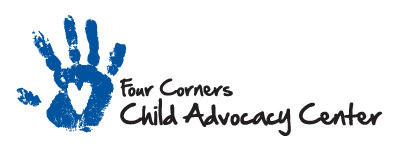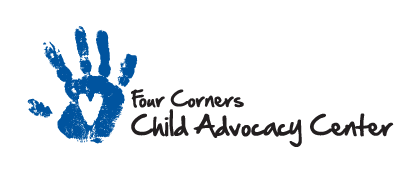Understanding Child Sexual Abuse
Parents, caregivers, educators, and professionals often seek clarity on complex issues surrounding child welfare. Our FAQ aims to shed light on some critical concerns.
What constitutes child sexual abuse?
Child sexual abuse involves any sexual activity with a minor, whether by an adult or another child in a position of power or maturity. This may include direct physical contact like touching or assault, as well as non-contact actions such as exposure, communication of a sexual nature, or coercion into viewing explicit materials. Sexual exploitation, including child pornography and molestation, also falls under this category.
It’s crucial to acknowledge that sexual abuse encompasses more than just physical harm. It involves manipulation, coercion, and violation of a young person’s trust and innocence. Often, perpetrators use psychological tactics, such as bribery, intimidation, or the exploitation of a child’s inherent trust in adults, to carry out or conceal the abuse. It’s imperative to understand that the responsibility for abuse lies solely with the perpetrator, not the child, and consent is never a factor when it comes to minors.
By addressing these inquiries, we strive to empower adults with knowledge to protect and advocate for our children effectively.
How can I report the abuse of a child?
Reporting child abuse and neglect is EVERYONE’S responsibility!
REFERRAL INFORMATION
A referral to The Four Corners Child Advocacy Center for a forensic interview or medical exam can only be made by Children’s Division or law enforcement.
If you have a concern for a child’s safety, please call the Child Abuse/Neglect Hot line at 800-422-4453 or 9-1-1.
Children’s Division is staffed 24 hours a day, 7 days a week, 365 days a year. State law requires DSS to respond to the information you provide in a timely manner.
NATIONWIDE USA – 1-800-4ACHILD (800-422-4453)
National Child Abuse Hotline Provides multilingual crisis intervention and professional counseling on child abuse. Gives referrals to local social service groups offering counseling on child abuse. Has literature on child abuse in English and Spanish. Operates 24 hours. TDD users call 1-800-2A-CHILD (800-222-4453)
If you would like some information regarding child sexual and physical abuse, please contact The Four Corners Child Advocacy Center. For children who are interviewed here, we provide a variety of resources available in your community, including mental health and medical providers
If you are a mandated reporter (teacher, medical provider, counselor, etc.), and a child has disclosed information to you about possible abuse, please contact the Hotline listed above immediately.
Supporting Your Child After Disclosure
Discovering your child has been a victim of abuse can be overwhelming, but your response plays a pivotal role in their healing. Here’s how you can be their strongest ally:
- Affirm Their Courage: Let your child know that coming forward was the right thing to do and that you’re proud of their bravery.
- Listen More, Ask Less: Be there for your child if they choose to share their feelings, but avoid probing for details about the abuse.
- Ensure Safety: Take immediate steps to protect your child from the suspected abuser, which safeguards everyone involved.
- Collaborate with Experts: Work closely with the authorities and child welfare professionals to ensure the best outcome for your child.
- Maintain Normalcy: While offering extra care, try to keep daily life as routine as possible for your child’s sense of stability.
- Prioritize Professional Support: Connect with the Four Corners Child Advocacy Center for guidance on obtaining specialized therapy for your child.
- Self-Care for Parents: Utilize our resources to find support for yourself, which in turn, will better equip you to assist your child.
- Nurture the Family: Remember the wellbeing of your other children and ensure they also receive support during this time.
- Embrace Optimism: Your unwavering support is a crucial element in your child’s recovery journey – they can emerge resilient with your help.
Remember, you’re not alone; the Four Corners Child Advocacy Center is here to guide you every step of the way towards a hopeful future for your child and family.
Words of Comfort and Support for Your Child
Communicating with your child after they’ve shared their experience of abuse is vital. Here are some compassionate assurances you can offer:
- “I believe in you and your strength.”
- “You’re not to blame for any of this.”
- “It breaks my heart that you’ve had to go through this, but we’ll get through it together.”
- “The future might seem uncertain, but we’ll face it one day at a time.”
- “You’re my priority; my job is to support you, not the other way around.”
- “My feelings of upset are directed solely at the person responsible, not at you.”
- “It’s okay to have complex feelings about the person who hurt you — it doesn’t change my unwavering love for you.”
- “Remember, I love you more than anything, always.”
These affirmations can be a lifeline for a child in crisis, reminding them they’re loved, believed, and never alone.
Understanding Silence: Why Children May Not Disclose Abuse
When it comes to the painful silence of a child experiencing abuse, the reasons behind their reticence are complex and heart-wrenching:
- Emotional Weight: Feelings of shame and embarrassment can be paralyzing.
- Misplaced Responsibility: Children might wrongly believe they are at fault.
- Previous Trauma: Past victimization can lead to a cycle of silence.
- Fear of Consequences: They may dread potential punishment or loss.
- Distrust: There’s often a fear that their words will fall on disbelieving ears.
- Conflicted Loyalties: Even in pain, a child may feel loyal to their abuser.
- Cultural Norms: Some cultures have strict rules regarding privacy and disclosure.
- Forced Secrecy: Offenders frequently coerce children into keeping secrets.
- Violence at Home: Existing domestic abuse can compound fears of speaking out.
- Protective Instincts: They may believe they’re safeguarding siblings.
- Family Bonds: The desire to maintain family unity can be a barrier to speaking out.
Children’s internal worlds during such trauma are riddled with guilt, confusion, and eroded trust, which may not be visible until much later in life. Disclosure is rarely straightforward and can emerge in bits and pieces over time.
Always Remember: Abuse can infiltrate any home, regardless of background. Disbelief from caregivers can deeply wound a child’s trust. Often, children withhold their stories to shield their parents from harm or distress, fearing they’ll incite anger or disappointment.
The Takeaway: For a child, the act of reporting abuse requires immense courage. It’s essential to create a supportive environment that fosters trust and open communication.
Decoding Grooming: Understanding the Tactics of Abusers
Grooming is a deliberate and often insidious process used by abusers to create a false sense of trust and authority in a child’s life. Here’s a breakdown of how they operate:
- Targeting the Vulnerable: Offenders often seek out children who crave attention or affection, exploiting their need for connection.
- Building Trust: They invest time to become a child’s confidante, often through gifts, attention, and seemingly genuine care.
- Breaking Down Barriers: Gradually, the abuser normalizes touch, starting with innocent interactions and escalating to more intrusive physical contact.
- Creating Isolation: They engineer situations to be alone with the child, offering to babysit or inviting them for sleepovers.
- Shifting Blame: The offender manipulates the child into thinking that they are complicit, instilling guilt and confusion.
Here are some common manipulative statements abusers might use:
- “You’re my favorite, you enjoy our games.”
- “If you speak up, they’ll say you’re the one to blame.”
- “Telling on me would ruin our family, do you want that?”
- “Your mom wouldn’t understand, she might stop loving you.”
It’s crucial to recognize these tactics to protect children from potential abusers. Awareness and education are powerful tools in preventing abuse.
What are some possible signs of child sexual abuse?
Signs of child sexual abuse can often be subtle and may not always be immediately recognizable. It’s essential to understand that these indicators can be diverse and not all children will exhibit the same signs. Here’s a refreshed overview:
Emotional and Behavioral Indicators:
- Sudden shifts in mood or behavior, unexplained anxiety or depression
- Changes in academic performance or school attendance
- Uncharacteristic aggression or withdrawal from friends and activities
- Regressive behaviors, such as thumb-sucking or bedwetting in older children
- Inexplicable fears or phobias, particularly of people or places
- Sexualized behavior or language that’s inappropriate for their age
Emotional and Behavioral Indicators:
- Recurring physical complaints like headaches or stomachaches without a clear cause
- Changes in appetite or unexplained weight changes
- Discomfort or pain in the genital area, difficulty sitting or walking
- Bruises, bleeding, or infections in the genital or anal areas
- Torn or soiled undergarments
- Signs of a sexually transmitted infection or pregnancy, particularly in adolescents
Still have questions? Contact us directly at the Four Corners Child Advocacy Center.

